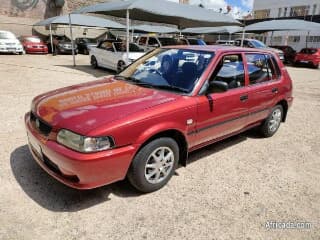Engine Purchasing Professional Tips on Picking the Right Engine for Your Certain Demands
Picking the appropriate engine for your particular requirements includes a complex interplay of aspects that go past mere horsepower figures. By diving into the intricacies of power versus performance, evaluating fuel rankings, and budgeting for long-term costs, one can truly enhance their engine selection.
Power Vs. Performance: Discovering the Equilibrium

When selecting an engine, it is vital to strike an equilibrium between power and performance to fulfill your particular needs successfully. Power describes the engine's capability to produce energy for propulsion, figuring out elements like velocity, pulling capability, and overall efficiency (Toyota Tazz Engine For Sale). On the other hand, performance associates with how well the engine makes use of fuel to create power, influencing factors such as fuel economic climate and environmental kindness
Attaining the appropriate balance between power and effectiveness is important since an engine that is also effective may eat extreme fuel, bring about greater operating expense and unneeded pressure on the environment. Conversely, an engine that prioritizes performance over power might result in sluggish performance, specifically sought after situations like hauling heavy lots or driving uphill.
To make an informed decision, think about variables such as your common driving conditions, the designated use of the automobile, and your individual preferences. By reviewing your top priorities and needs, you can pick an engine that strikes the excellent equilibrium in between power and effectiveness, making certain optimum efficiency while lessening ecological effect and operating expense.
Comprehending Engine Size and Type

Furthermore, engine type plays a critical duty in determining the performance characteristics of an engine. Common engine types include inline engines, V engines, and rotary engines, each with its unique advantages and downsides. The engine kind influences variables such as the engine's dimension, weight distribution, and power delivery. Understanding the interplay between engine dimension and kind is crucial in picking an engine that lines up with your particular needs and top priorities, whether it be power, effectiveness, or a balance of both.
Consider Your Lorry's Demands
If you are looking for an engine for a sturdy vehicle that will certainly be utilized for towing, you will need an effective engine with high torque capacities. On the other hand, if you are selecting an engine for a small auto primarily utilized for city commuting, fuel effectiveness might be an extra critical element to think about.

Reviewing Gas Performance Scores
Examining fuel performance scores is a vital element of selecting the appropriate engine for your automobile, making sure price savings and environmental sustainability. Fuel performance scores, normally determined in miles per gallon (MPG) for gasoline engines or kilowatt-hours per 100 miles (kWh/100 miles) for electric engines, indicate exactly how much a lorry can travel on a certain amount of Homepage gas or power. Greater MPG or reduced kWh/100 miles values symbolize much more effective engines, translating to lowered fuel costs and reduced carbon discharges.
When assessing gas effectiveness ratings, consider your driving behaviors and requirements. A very fuel-efficient engine can result in significant savings over time if you commute long ranges daily. Additionally, compare different engine alternatives within the same lorry class to recognize the most cost-effective choice. Aspects such as engine size, weight, the rules of aerodynamics, and crossbreed or electric capacities can all influence fuel performance.
Budgeting for Long-Term Prices
Strategically preparing for lasting costs is vital when picking an engine, guaranteeing monetary sustainability over the lorry's lifespan. While the initial purchase price of an engine is a find out substantial element, it is vital to think about the long-lasting costs connected with upkeep, fixings, and gas consumption. Opting for a more fuel-efficient engine may have a higher in advance price yet can cause substantial savings in time. Routine maintenance, such as oil modifications, filter substitutes, and tune-ups, is important to keep the engine running smoothly and efficiently, reducing the risk of pricey fixings down the line.
In addition, investigating the accessibility and cost of substitute parts for the selected engine is crucial in budget plan preparation. By meticulously budgeting for these lasting expenditures and factoring them right into the decision-making procedure, people can choose an engine that not just meets their immediate requirements yet likewise continues to be affordable throughout its lifespan.
Conclusion
In conclusion, selecting the right engine for your particular demands needs stabilizing power and efficiency, comprehending engine dimension and type, considering your lorry's requirements, reviewing gas performance ratings, and budgeting for long-term prices. By very carefully taking into consideration these factors, you can make sure that you choose an engine that fulfills your demands and supplies optimal efficiency for your vehicle.
To even more improve the option procedure of an engine that strikes the ideal balance between power and performance, it is important to original site dive into the intricacies of understanding engine dimension and kind. Engine dimension refers to the total quantity of air and fuel that can be pushed via the engine cylinders. Usual engine types consist of inline engines, V engines, and rotary engines, each with its one-of-a-kind benefits and drawbacks. Understanding the interaction in between engine dimension and kind is vital in choosing an engine that lines up with your specific demands and top priorities, whether it be power, performance, or a balance of both.
Fuel efficiency ratings, normally gauged in miles per gallon (MPG) for gasoline engines or kilowatt-hours per 100 miles (kWh/100 miles) for electrical engines, indicate how far a car can take a trip on a certain quantity of gas or electricity.